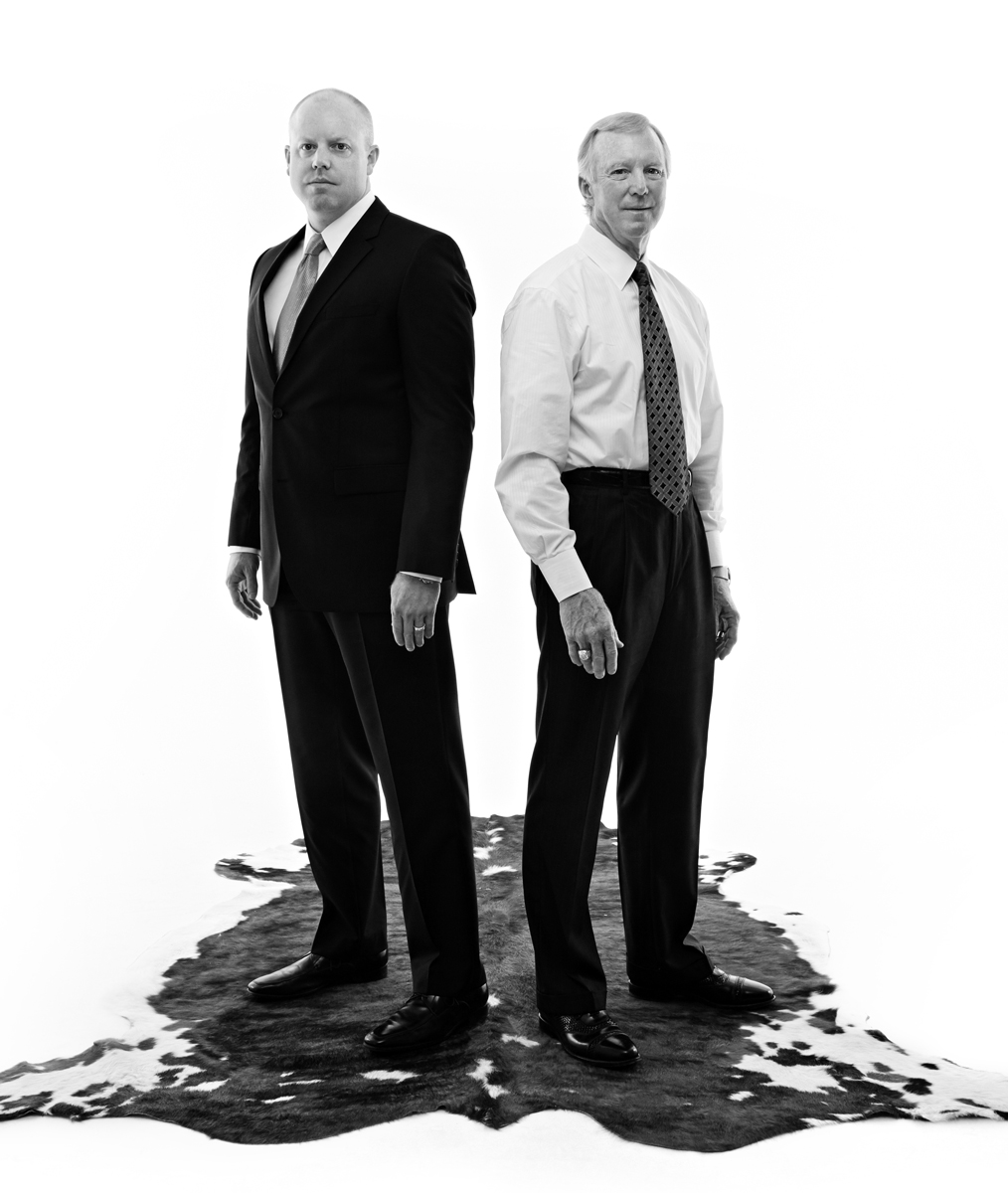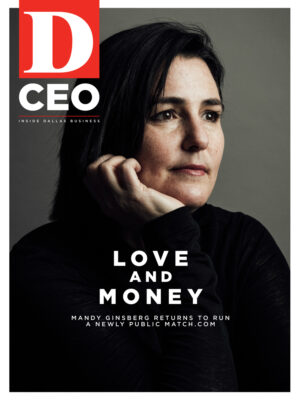Dallas appraisal executive Chuck Dannis has taught the same real estate class at Southern Methodist University’s Cox School of Business since 1988. Over the years, enrollment has risen and fallen, in line with the cyclical nature of real estate. “I think my 2009 class had seven students,” Dannis says. “This year, I had 37—the biggest class ever.”
During the last couple of decades, many 20-somethings have been lured by the excitement of careers in technology and oil and gas. Now, though, as Dannis’ class size illustrates, commercial real estate is making a comeback. There’s a lot to love about the profession. For the most part, it’s out-of-the-office work. It’s intellectually stimulating, there’s a lot of creative problem-solving, and it has a strong entrepreneurial bent. “Real estate is mostly an ‘eat what you kill’ profession,” Dannis says. “It allows high achievers to make more money than those who just want to cruise along at their own pace.”
The earnings potential in real estate is completely relative to the risk you’re willing to take, according to Joseph Cahoon, director of the Folsom Institute for Real Estate at SMU’s Cox School. “Historically, brokerage is low to no base,” he says. “It’s all commissions, all upside. Young people who are very performance-driven can get well into the six figures—especially those who are mentored well and on a good team.”
Other real estate careers, like working for an institutional investor, for example, typically provide base or base-and-bonus compensation packages. It’s more akin to a corporate post, where there’s more stability and little risk. In real estate, revenue is generated either through the collection of rents or the sale of properties. “So,” Cahoon says, “the question to ask is, ‘What role am I playing in that process? What is my compensation tied to?’”
With North Texas real estate activity pretty much at an all-time high, job prospects for current students and recent graduates are strong. The looming retirement of aging baby boomers and a dearth of mid-level real estate executives create even more opportunities. The Great Recession kept a lot of would-be players out of the game, creating a “lost generation” in the business. “I can’t tell you how many people call me looking for someone with three to five years of experience,” Cahoon says. “That person doesn’t exist.”
As part of D CEO’s annual Power Brokers coverage, we talked with three leading North Texas brokers whose sons and daughters are forging their own paths in the business. For them, commercial real estate has become a family tradition.
The Dickensons
As young kids, twins Charley and John Dickenson and their younger sister, Melanie, would sometimes tag along with their dad on weekend trips to the office. They thought he had a pretty sweet gig. “We thought he just ate donuts and threw paper airplanes from the top of Williams Square,” Charley says. “For us, that’s what ‘going to the office’ meant.”
In reality, Mark Dickenson was already well on his way to becoming one of the region’s most successful leasing agents. He took a post with Hines not long after graduating from SMU, peddling space in the office component of a new project the developer was doing in Dallas: the Galleria. After that auspicious start, he shifted his focus to Las Colinas in the mid-1980s, joining Dary Stone to oversee leasing of the old Carpenter family portfolio (2,500 acres of land and about 4 million square feet of office space). A few cycles and several mergers and acquisitions later, Dickenson now serves as senior managing director at Cushman & Wakefield.
As the twins got older, they began to get a better understanding of what their father did. Internships during college provided even more clarity. (Calling themselves a “package deal,” the boys attended the University of Denver, where they played lacrosse.) “We learned that real estate was not about being stuck behind a computer all day,” John says. “It’s going out and meeting people.”
“We’ve always been competitive, and always been part of a team,” Charley adds, referring to their lacrosse experiences. “When you get into real estate, it really isn’t much different.”
During their senior year, the twins both secured interviews with Peloton Commercial Real Estate in Dallas. It was 2010, and job opportunities in the industry were sparse. “Charley went in first, and I went right after,” John says. “It was almost like that interview scene in ‘Step Brothers.’” After a nerve-wracking two weeks, Peloton came back with its decision: It would hire both of them.
Like their father, they worked as office leasing agents, throwing themselves into their work and pursuing their CCIM designations, which requires advanced coursework in financial and market analysis. Within a few years, the young men reached a level of success that allowed them to begin making some property investments on their own behalf. That experience led Charley to shift to another area of real estate. In December, he joined a debt team at HFF. “I realized there was this whole other part of the business that struck a chord with me,” he says.
The youngest sibling, Melanie, side-stepped her way into real estate. She studied fashion merchandising at the University of Georgia, and, from an early age, always thought she’d work in retail. But internships and jobs in the industry left her feeling unfulfilled. “I never felt that spark,” she says. A friend of her parents, David Watson at Direct Development, heard she was looking for a job. He hired her, became her mentor, and taught her about leasing and marketing retail space. Applying her merchandising and marketing background to real estate was a perfect fit. “I can’t imagine doing anything else,” she says. This past August, after about three years at Direct Development, she joined another retail developer, Fidelis Realty Partners, where she works as a leasing representative.
Mark Dickenson says he’s proud that all three of his children have been able to leverage their various skills and interests in an industry he loves. He also admits to being a bit jealous. “If I was 24 again and had the chance to move to any city in the country and pick any occupation, I’d be in Dallas in the real estate business,” he says. “What’s happening—and what’s yet to come in the next 10 or 20 or 30 years—it’s just incredible.”
The Ewerts

He thought he’d get into software sales—do something that had more interaction with people. But he couldn’t convince anyone to hire him. “The fact that I had no sales experience crushed me,” Travis says. “I was hitting a brick wall, and drowning in debt.” So he swallowed his pride and went back to what he knew, joining KPMG and doing the same work he had done before, but this time with local clients. After a few years, however, the old frustrations returned. Already in his early 30s, he knew something had to change. “I was desperate to find a career that better suited me, one that offered more than just an annual 5 percent salary bump, something that would give me more control over my success,” Travis says. “I went to my dad and said, ‘I’m lost.’ He said, ‘Let me tell you about real estate.’”
Travis and his father are very close, and Travis had always admired his dad’s success. But he never wanted to ride on his father’s coattails. Rather, he spent more than a decade running away from a career he seemed destined to have. When the younger Ewert finally decided to give real estate a try, he didn’t join his dad’s tenant rep team at JLL. Instead, he became an office leasing agent at PM Realty Group. “I chose to start as a grunt, as a nobody at a different company,” Travis says. “I had to prove to myself that I belonged in the industry before going to [my dad’s] shop.”
As it turns out, working on the leasing side taught Travis a lot about tenant representation. In negotiating deals with different brokers from different companies, he identified traits he admired, and some he didn’t like. He pulled from the best to create his own style and, after about three years at PM, shifted to the tenant representation side, first at Transwestern and then at Colliers International. It wasn’t an easy transition. Other tenant reps whispered about how he was winning business just because of his last name. Even his own colleagues shied away from sharing information with him, worrying that Travis would just feed the information to his dad. But slowly he began to prove his worth, building a client base by calling on tenants at the buildings he previously leased. Other brokers began including him on pitches when going after some big accounts. One of those was Zix Corp. Winning the business was a milestone moment for Travis, because one of the other tenant reps competing for the assignment was his dad.
One of the greatest thrills a parent can have is seeing the success of a child.
Carl didn’t lose often. Like his son, he had waited until he was in his early 30s before getting into real estate, but once he did, it was game on. A Dallas native, he studied finance and real estate at Texas Tech University and worked briefly in banking before landing at an electronics company. He achieved a great deal of success but was bored with the repetition, selling the same widgets to the same customers over and over again. A friend, Dan Arnold, who was with Swearingen Realty at the time, suggested he get into brokerage. Carl joined Swearingen in 1983. Four years later, he moved over to The Staubach Co., where he helped Roger Staubach pioneer the concept of tenant representation. Carl also decided to focus on becoming an expert in one market: downtown Dallas. It was a time when a lot of companies were flocking to Legacy business park, Las Colinas, and other suburban destinations. But for Carl, who had always been somewhat of a contrarian, the strategy worked. Over a number of decades, Carl estimates that he brokered deals involving about 70 percent of downtown tenants.
“A lot of people get into real estate because of the money,” he says. “They chase the transaction, get paid, and move on. It was never about that for me. I like winning, but winning was not my motivation. What I loved about it was the relationships, becoming intertwined with people, and, at the same time, trying to help downtown Dallas return to its glory.”
After The Staubach Co. was acquired by JLL in 2008, a number of key brokers left for other shops once their non-compete clauses expired. Despite lucrative offers from competitors, Carl decided to stay with the one who brought him to the dance. He remembers talking with Staubach about the future. “Roger and I are good friends, and we’ve had a lot of conversations over the years,” Carl says. “I asked him when it was the best time to get out. He said to always leave when you’re on top, like he did with football.”
So a few years back when his grandchildren began coming along, Carl made the decision to begin pulling back on his career, even as it was flourishing and the market was booming. An admitted workaholic while his own children were young, he didn’t want to make the same mistake with his grandchildren. Carl decided a Hall Arts lease from KPMG—his first major client decades earlier—would become one of his last big deals.
When KPMG took occupancy of its Arts District space in 2015, it was a cue for Travis to make a move. If he was ever going to work with his father, he had better hustle. Travis had been looking for a new opportunity and was in talks with the three big shops. All were interested in luring him away from Colliers International, but JLL seemed to be a foregone conclusion.
“I’ve always seen JLL as the finish line, in terms of where I wanted to end my career,” says Travis, who joined the company last May. “My father helped build the place, and there are so many good people at the firm. Being around success just breeds success. And even though I’ve made it, to some degree, there’s always a lot to learn.”
Carl is still representing some long-term clients, but he’s no longer pursuing new business. He and his wife, Trisha, who’s in the title business, remain actively involved in real estate, civic, and nonprofit organizations. Several of the five Ewert children and their spouses are involved in some aspect of the real estate business, but Travis is the only one who works as a broker. Carl says he’s glad that his son has forged his own way, on his own terms, and that Travis’ hard work is paying off. “One of the greatest thrills a parent can have is seeing the success of a child,” he says.
The Gumps

Allen Gump first got into real estate in 1984, after working with his dad and brother in the insurance business. A few of his fraternity brothers and other friends from college were making bank in real estate, so he decided to give it a try, too. “Fifteen minutes later,” Gump says, “the market went to hell.”
He decided to stick with it anyway, and concentrated on learning the ins and outs of brokerage. He also worked to become a specialist in the trucking industry—well before most people were focused on logistics. It was a niche that got him through the rough patch. Even in the downturn, Allen loved real estate. “Every day is different, and you have the opportunity to interact with the leaders of so many different kinds of businesses,” he says. “One day you might be working with a plastic bag manufacturer, and the next day you’re working on logistics for a company that makes seismic equipment. You learn how they make money, create jobs, and grow the economy.”
Allyson studied advertising and public relations at Texas Christian University, graduating in 2008. Unable to find a job in those fields, she took a post at a fleet management company, vowing to give herself no more than three years to find something that was a better fit. She was looking at getting into insurance sales when her dad intervened. Although he had mentored a number of young professionals, Allen had always been a “lone wolf” broker. He was on track to become national president of the Society of Industrial and Office Realtors, though, and knew he’d need some support to keep his business going while he was traveling for SIOR and doing work on behalf of the organization.
“Often when you bring along new brokers, it’s a crapshoot,” Allen says. “You work with them for a couple of years; 90 percent of them don’t make it, and the ones who do end up getting a better deal elsewhere. It’s a tremendous investment of time. With Allyson, I knew her capabilities, and I knew I wouldn’t have to worry about some of those other things.”
Intrigued and excited, Allyson began working with her father at Colliers International in October of 2011. There were some immediate challenges. Allen had to learn to slow down and take the time to teach his daughter. “I think high-performing athletes or high performers of any kind make lousy trainers,” he says. “You move at a certain rate of speed and just want everyone else to keep up.” Allyson had to learn to not get emotional when being called out for her mistakes. “It was mostly a maturity thing,” she says.
It’s true you can’t be in two places at once. But with Allyson, I kind of can be.
Allyson has had the benefit of being able to ask her dad anything, and the security of knowing that he has a vested interest in her success. Allen says he’s learned a lot from his daughter’s exceptional attention to detail, and that she has taught him to be more organized. She has also gotten him jazzed about real estate again. “After a long time of doing any one thing, you can get a little complacent,” Allen says. “Working with Allyson has rejuvenated my interest in the business. I can now see myself going another 10 years; I don’t know if I would have said that before.”
Gump has gotten calls from a number of real estate colleagues asking for advice on working directly with their son or daughter. “Many have a little trepidation,” Allen says. “I’ve told them it’s critical to have a third person in the mix.” A tie-breaker, if you will. For the Gumps, that person is Client Services Specialist Jennifer Selby. “She knows me very well, but is closer in age to Allyson,” Allen says. “Having that third person has made all the difference. I don’t know if it would have worked without Jennifer.”
After four years in the business, Allyson has reached the point where she’s taking on some projects of her own, including a few office deals. Allen, who ascended into his SIOR presidency this year, says that having her support has been a game-changer. He laughs when he recalls how he once ran into her on a building tour, when he and his daughter were showing different prospective tenants the same space. “It’s true you can’t be in two places at once,” he says. “But with Allyson, I kind of can be.”






